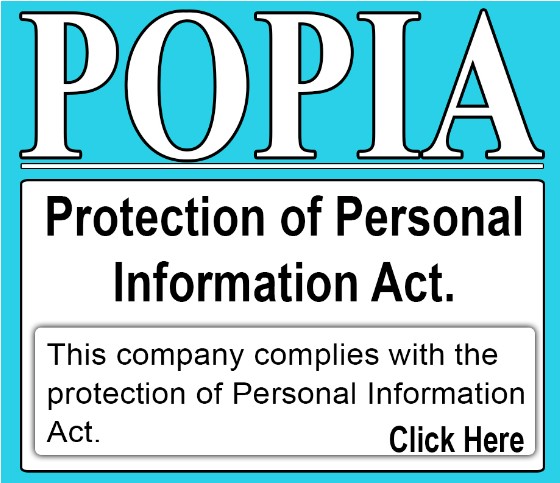BRITS POS – HARTBEESPOORT - On Monday, 3 November 2025, an employee of a business traveling along Beethoven Street, Hartbeespoort, was stopped at a roadblock operated by Madibeng Local Municipality Traffic Services.
After a routine inspection of the vehicle’s license disc, traffic officers informed the driver that there were allegedly outstanding traffic fines linked to the vehicle, not to the driver personally.
The officers then took possession of the driver’s license card and informed him that they would either not return his driving license or confiscate the vehicle unless all outstanding fines were not paid immediately, in cash, at the roadside. The driver contacted his employer, who arrived at the scene and confirmed the situation. Upon demanding the immediate return of the driving licence, the employer was met with verbal aggression, shouting, and continued refusal to hand back the document by a female officer, allegedly “in charge of the operation.” She was allegedly the one who abused them verbally and who confirmed the conditions of release of the driving license.
After reaching out to me and following my advice, the employer and employee proceeded to lay a formal criminal complaint of theft at the Hartbeespoort Police Station. Despite resistance from some police personnel, the complaint was ultimately accepted after intervention by the Station Commander, Colonel Brandt, who directed those detailed statements be obtained. While at the police station, they encountered another complainant reporting the same conduct - his employee’s license had also been withheld by the same traffic officers under the same unlawful condition. This establishes a disturbing and potentially criminal pattern of conduct by municipal traffic officers.
Nothing in the National Road Traffic Act 93 of 1996, the Criminal Procedure Act 51 of 1977, or the South African Police Service Act 68 of 1995 authorizes any traffic officer to demand, receive, or enforce payment of traffic fines at a roadblock.
Outstanding fines are administrative or judicial matters to be processed via summons, written notice, or the AARTO system. Roadside collection is unlawful.
The officers in this case did not confiscate the license because it was expired, suspended, or defective. They took it and refused to return it purely as leverage to compel cash payment. This constitutes unlawful deprivation of property, contrary to Section 25 of the Constitution.
It may amount to theft under Section 1 of the Criminal Law Amendment Act, since the intention was to permanently deprive the holder of use and enjoyment of the property unless payment was made. It also meets the definitional elements of extortion under common law: “the intentional and unlawful acquisition of a benefit by subjecting another to pressure or threats.”
The action further constitutes corrupt conduct in terms of the Prevention and Combating of Corrupt Activities Act 12 of 2004, as public officials obtained or attempted to obtain an undue benefit by abusing their position.
- Traffic officials may issue notices or summonses, but they may not receive or demand payment on behalf of a municipality or court at a roadblock.
- Fines can only be paid via official municipal or court channels.
- Demanding payment under threat of withholding property is an act of coercion and abuse of authority, not law enforcement.
- Electronic Searches Without Reasonable Cause Are Questionable
- Running license or registration checks on private or company vehicles to locate unpaid fines not related to the driver can constitute an unwarranted data search if no offense is suspected, implicating Section 14 of the Constitution (privacy) and Section 21 of the Criminal Procedure Act (search without warrant).
- The law requires reasonable grounds to suspect a crime before such a search. Outstanding fines are not criminal convictions and cannot justify seizure or retention of property.
The repeated, identical conduct — by the same officers, in the same area, and under the same pretext — suggests a deliberate and ongoing pattern of criminal behaviour. When law-enforcement officials repeatedly commit acts of theft and extortion for financial gain, such conduct may qualify as syndicated crime under the Prevention of Organized Crime Act 121 of 1998 (POCA).
Both municipal and SAPS oversight bodies have a duty of proactive intervention once made aware of such conduct.
What you should know about your rights:
- Do not pay fines at the roadside. You are under no legal obligation to make any payment directly to a traffic officer.
- Demand the immediate return of your driving license. Unless a court or MEC has lawfully suspended or cancelled your license, no officer may withhold it.
- Document all interactions. Note badge numbers, names, dates, times, and record video or audio (lawfully) if possible.
- Lay a criminal charge immediately. Theft, extortion, and corruption are criminal offenses. Insist that SAPS registers a docket and provides a CAS number.
- Escalate to oversight authorities:
-- Independent Police Investigative Directorate (IPID)
-- Provincial Department of Community Safety and Transport Management
-- Public Protector of South Africa
-- South African Human Rights Commission (for constitutional violations)
-- If you are stopped in this way, inform your employer or fleet owner if the vehicle is not yours; fines and administrative issues must be resolved through proper legal channels, not at a roadside under duress.
-- Report patterns publicly and to the media — transparency is the strongest deterrent to systemic abuse.
MESSAGE TO LAW-ENFORCEMENT AND MUNICIPAL AUTHORITIES:
- Municipal traffic officers operate under delegated legislative authority and must act within the strict bounds of the National Road Traffic Act.
- Any officer retaining personal documents to coerce payment is committing a criminal act, not enforcing the law.
- SAPS officers must not refer complainants back to suspects or decline to open cases. Once a cognizable offense is reported, it must be recorded, investigated, and prosecuted.
- Senior municipal and SAPS management must treat such incidents as disciplinary, criminal, and integrity breaches, warranting urgent intervention.
This Hartbeespoort incident is a textbook case of unlawful conduct by traffic officers acting outside their legal mandate. Confiscating a driving license to force payment of unrelated fines is extortion, theft, and corruption — not law enforcement. Members of the public, business owners, and fleet operators must be alert, assert their rights, and report such conduct immediately.
The South African Police Service and relevant oversight bodies are called upon to intervene decisively to restore legality, accountability, and public trust.
Contribution by:
Stan Bezuidenhout
IBF Investigations
Email -









